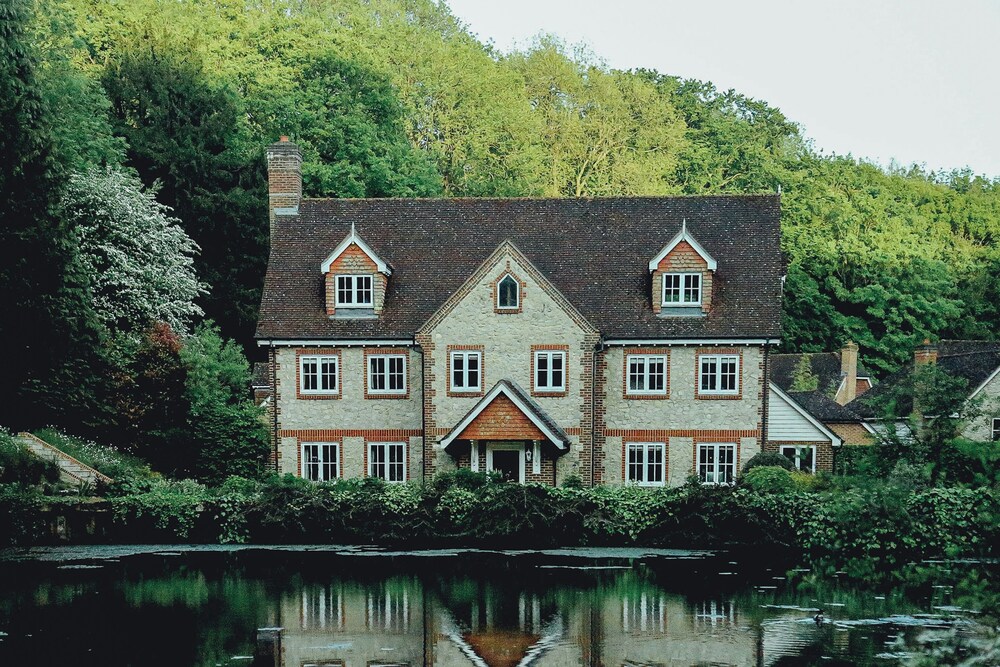- Home
- Articles
- Architectural Portfolio
- Architectral Presentation
- Inspirational Stories
- Architecture News
- Visualization
- BIM Industry
- Facade Design
- Parametric Design
- Career
- Landscape Architecture
- Construction
- Artificial Intelligence
- Sketching
- Design Softwares
- Diagrams
- Writing
- Architectural Tips
- Sustainability
- Courses
- Concept
- Technology
- History & Heritage
- Future of Architecture
- Guides & How-To
- Art & Culture
- Projects
- Interior Design
- Competitions
- Jobs
- Store
- Tools
- More
- Home
- Articles
- Architectural Portfolio
- Architectral Presentation
- Inspirational Stories
- Architecture News
- Visualization
- BIM Industry
- Facade Design
- Parametric Design
- Career
- Landscape Architecture
- Construction
- Artificial Intelligence
- Sketching
- Design Softwares
- Diagrams
- Writing
- Architectural Tips
- Sustainability
- Courses
- Concept
- Technology
- History & Heritage
- Future of Architecture
- Guides & How-To
- Art & Culture
- Projects
- Interior Design
- Competitions
- Jobs
- Store
- Tools
- More
How to Select the Best Materials When Building Your Home

Choosing the suitable materials requires cautious thought of different variables, including climate, budget, and long-haul maintenance needs. This exposition gives ten urgent focuses to direct you in picking the best materials for building your home, guaranteeing that you settle on informed choices that will endure over the long haul.
Think about the climate
The climate wherein you’re building your home is vital in material determination. For example, materials that give excellent protection, like insulated concrete forms (ICFs), are fundamental if you’re building in a region inclined to extreme temperatures. These materials assist with keeping a stable indoor temperature, decreasing energy costs and expanding comfort. Materials that oppose shape and mould are basic in regions with high humidity. Then again, in areas with continuous freeze-thaw cycles, you’ll need materials that can extend and contract without breaking, like particular sorts of block or composite materials.
Evaluate durability
In any case, on the off chance that you’re looking for a more modern choice, insulated concrete forms (ICFs) offer excellent durability while likewise providing energy efficiency. ICF blocks are impervious to natural disasters, vermin, and fire, making them an incredible decision for dependable development. Putting resources into sturdy materials could accompany a higher upfront cost. A benefit, however, is that it materializes over the long haul by reducing maintenance and repair expenses.

Assess energy efficiency
Energy efficiency is a developing worry for some homeowners, for environmental reasons as well as for cost investment funds. The materials you pick can altogether impact your home’s energy utilization. Materials with high warm mass, like concrete or block, retain and store heat. Integrating materials like ICFs can additionally improve your home’s energy efficiency. ICFs give unrivalled protection, lessening the broad heating and cooling framework requirement. Moreover, consider utilizing energy-proficient windows and entryways that limit heat transfer and work on overall efficiency.
Examine feel
The visual appeal of your home is urgent, and the materials you select will generally decide its style. Your decision should be based on your style and the design of your home in-general. For example, wood offers a warm, natural look that mixes well with different architectural styles, from rustic to modern. Stone and block ooze a timeless appeal, giving your home a classic, getting-through appearance. If you favour a smooth, contemporary look, consider materials like steel or glass, which can make a minimalist and modern style. Remember, the outside materials will characterize your home’s check appeal, so decide wisely to guarantee your home mirrors your taste and way of life.
Think about maintenance requirements
Maintenance is a continuous part of homeownership, and the materials you pick will impact how long and cash you’ll have to spend on upkeep. A few materials, similar to block and stone, require minimal maintenance and can endure the elements for a long time without critical decay. Wood, then again, may require standard finishing, painting, or sealing to safeguard it from moisture, vermin, and UV harm. Composite materials, such as fibre concrete or engineered wood, offer the look of natural timber with lower maintenance needs. Choosing materials that align with your ideal maintenance level allows you to partake in your home without the weight of steady repairs and upkeep.
Budget wisely
Your budget is an urgent figure for material determination. While going for the most extravagant choices is enticing, offsetting cost with quality and longevity is fundamental. Top-of-the-line materials like natural stone or hardwood deck can enhance your home, yet they are more expensive. In any case, budget-friendly alternatives offer a comparative feel and execution. For instance, engineered wood gives the look of hardwood for a portion of the expense. Combining premium and economical materials in various regions of your home can assist you with remaining within budget without settling on quality.
Research environmental impact
While picking materials, contemplate their environmental impact. For example, recovered wood or reused metal can add a unique person to your home while lessening the interest in new assets. Furthermore, materials like bamboo or stoppers are sustainable and have a lower environmental impression than conventional hardwoods. Picking environmentally dependable materials helps the planet and improves your home’s marketability from here on out.
Evaluate nearby accessibility
Obtaining materials locally can have advantages, including decreasing transportation costs and supporting nearby organizations. Also, nearby materials are, in many cases, more qualified for the climate and environmental conditions of the area. For instance, if you’re building in a region known for its stone quarries, utilizing privately sourced stone can be a practical and environmentally friendly decision. Involving neighbourhood lumber or earth for blocks can decrease your carbon impression and guarantee that your home mixes with its environmental elements agreeably.
Consider future resale value
The materials you pick impact your home’s appeal to future purchasers. Superior-grade, sturdy materials like stone, block, or ICFs can improve your home’s value, making it more alluring to potential purchasers. Then again, utilizing modest or obsolete materials could cheapen your home’s appeal and result in lower offers. Regardless of whether you intend to sell your home anytime soon, choosing materials considering resale value is a brilliant investment that can be taken care of in the distance.

Focus on safety and compliance
Safety is fundamental in any development project, and the materials you pick should satisfy safety guidelines and building codes. This incorporates imperviousness to fire, underlying uprightness, and resistance to natural disasters. Materials like ICFs offer phenomenal durability, energy efficiency, and upgraded safety highlights, such as imperviousness to fire and the capacity to endure extreme weather conditions. Also, guarantee that the materials you select are agreeable with nearby building guidelines and codes. Resistance can bring expensive fines, postponements, or needing to re-try specific parts of your development. Focusing on safety and compliance guarantees that your home isn’t just gorgeous, secure, and legally sound.
Choosing the best materials while building your home requires an intelligent methodology that adjusts style, durability, energy efficiency, and budget contemplations. By considering variables, for example, climate, maintenance needs, and environmental impact, you can go with informed choices that will improve your home’s comfort, value, and longevity. Whether you’re attracted to the classic appeal of natural stone or the modern efficiency of ICF blocks, the suitable materials will establish a home that you’ll value for quite a long time. Via cautiously considering these ten central issues, you’ll be exceptional in making a home that addresses your issues and endures over the long haul.
illustrarch is your daily dose of architecture. Leading community designed for all lovers of illustration and #drawing.
Submit your architectural projects
Follow these steps for submission your project. Submission FormLatest Posts
What Architects Need to Know About LiDAR Before Your Next Renovation Project
Table of Contents Show The Real Problem With Traditional As-Built DrawingsWhat Exactly...
Modernism vs Postmodernism: How Order and Ornament Shape Architectural Meaning
Modernism and Postmodernism represent two fundamentally different ways of understanding architecture’s role...
Tips to Keep Your Belongings Safe from Heat, Cold, and Humidity
Table of Contents Show Pack everything appropriatelyWhat to do if you plan...
8 Smart Steps to Take Before Buying a Home for Sale
Table of Contents Show 1. Assess Financial Readiness2. Research Neighborhoods Thoroughly3. Be...












Leave a comment